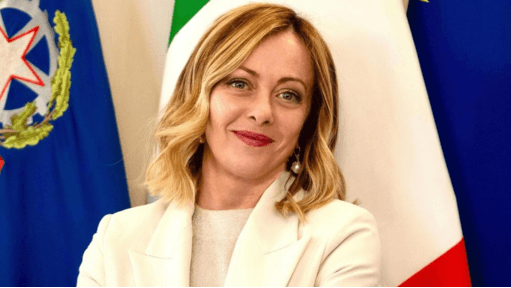
Italy PM Giorgia Meloni Seeks $100k in Damages for Deepfake Pornographic Videos
Italy's Prime Minister Giorgia Meloni is taking legal action and seeking €100,000 ($109,345) in damages after explicit deepfake videos depicting her were created and circulated online without her consent.
Deepfake technology involves digitally superimposing one person's face onto another's body. The videos in question emerged in 2022, predating Meloni's appointment as Italy's Prime Minister.
Authorities have identified and charged a 40-year-old man and his 73-year-old father with defamation for allegedly creating and uploading the manipulated videos, which superimposed Meloni's face onto pornographic material.
According to a report by the BBC, the police were able to locate the accused individuals by tracking the smartphone used to upload the videos. Under Italian law, certain forms of defamation can constitute criminal offenses, potentially resulting in imprisonment. Meloni is slated to testify before a court on July 2.
The indictment asserts that the altered videos were uploaded to a pornographic website based in the United States, amassing "millions of views" over several months.
Meloni's legal team has characterised the €100,000 damages claim as "symbolic," affirming that the Prime Minister plans to donate the entire sum to organisations aiding women who have suffered gender-based violence.
Maria Giulia Marongiu, Meloni's attorney, said: "The demand for compensation will send a message to women who are victims of this kind of abuse of power not to be afraid to press charges."
Deepfakes represent a type of synthetic media generated using artificial intelligence (AI) to manipulate visual and audio content, often with malicious intent, to appear genuine.
The term "deepfake" originated in late 2017 on Reddit when a user by the same name established a platform for sharing pornographic videos created with open-source face-swapping technology.
As AI capabilities advance, deepfakes have become increasingly realistic and widespread, posing a significant threat to public trust and information integrity.
These highly convincing fake audio and video recordings can be exploited to spread misinformation, sway public opinion, and damage reputations by depicting individuals engaging in actions or making statements they never actually did.
The proliferation of deepfakes has prompted global leaders to express concerns about their potential for misuse and the propagation of disinformation.
For any enquiries or information, contact ask@tlr.ae or call us on +971 52 644 3004. Follow The Law Reporters on WhatsApp Channels.